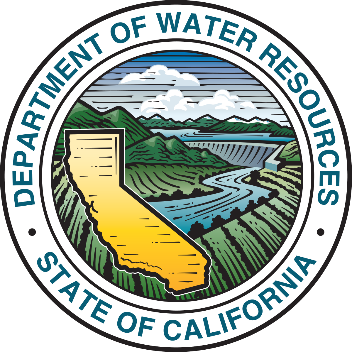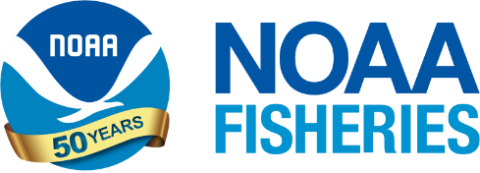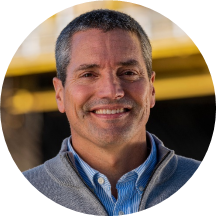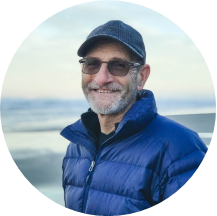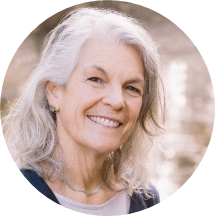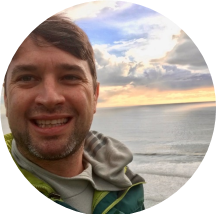Speaker and Moderator Bios
Exploring California Climate Change Connections: What Science Knows
December 2 and 3, 2020
Brief biographical sketches of the speakers and moderators follow, in alphabetical order.
David Ackerly, Ph.D., University of California, Berkeley
David Ackerly is a climate change biologist and professor in the departments of Integrative Biology and Environmental Science, Policy, and Management and Dean of the Rausser College of Natural Resources at UC Berkeley. Ackerly’s research group studies the impacts of climate change on biodiversity in California, and post-fire forest dynamics in mixed hardwood and oak woodlands. He has focused on the importance of spatial climate heterogeneity at landscape and regional scales to enhance resilience and facilitate range shifts for native plants and animals. He co-leads the Terrestrial Biodiversity Climate Change Collaborative (TBC3). TBC3--a Berkeley-Pepperwood collaboration--has helped develop high resolution projections for future climate in California, across a range of possible scenarios, and the group works with land managers, NGOs, state agencies and the National Park Service to consider new approaches to manage vegetation in the face of changing conditions.
Whitney Albright, California Department of Fish and Wildlife
Whitney Albright is a Climate Change Specialist with the California Department of Fish and Wildlife (CDFW) where she works to incorporate climate change considerations into various programs and activities at the Department to support the adaptation of fish and wildlife to climate impacts. She is also part of the Department’s Science Institute, helping to maintain and improve the quality and integrity of science that is produced and used by the Department, including climate science. Whitney holds a B.S. in Meteorology from the University of Oklahoma and an M.S. in Forestry from the University of Washington.
Michael Anderson, Ph.D., P.E., California Department of Water Resources
Michael Anderson is the State Climatologist for California, a collaborative position between the State and the National Oceanographic and Atmospheric Administration to provide climate data services for the State. He participates in interagency climate change work team activities; develops climate program content in the area of extreme events, sub-seasonal to seasonal forecasting and adapting to climate change; interacts with the research community and supports Department of Water Resources (DWR) personnel on a range of projects. Michael began working in the DWR Division of Flood Management River Forecasting Section in July 2005. He came to DWR after extensive graduate and post-graduate work at U.C. Davis in the area of hydroclimate system modeling, monitoring, and evaluation. He received his Ph.D. in 1998 and M.S. in 1993 in Civil and Environmental Engineering from UC Davis. He received his Bachelor’s degree in Civil Engineering from Colorado State University in 1991.
Rupa Basu, Ph.D., M.P.H., CalEPA Office of Environmental Health Hazard Assessment
Rupa Basu, PhD, MPH, is currently the Chief of the Air and Climate Epidemiology Section at the Office of Environmental Health Hazard Assessment (OEHHA) of the California Environmental Protection Agency. She has published extensively on research focusing on examining temperature and air pollution on health outcomes, including mortality, morbidity, and adverse birth outcomes, while identifying vulnerable subgroups. Prior to joining OEHHA, she worked at the US Environmental Protection Agency, after obtaining her PhD degree in epidemiology from The Johns Hopkins University Bloomberg School of Public Health and her MPH degree from the UCLA School of Public Health. She collaborates with external agencies such as the Scripps Institute of Oceanography and the Kaiser Division of Research on research studies that have been federally funded. She serves on several statewide and national climate change committees and has been an invited guest speaker on many occasions from academic settings including teaching a course on climate change and public health at UC Berkeley to governmental leaders, such as former Governor Schwarzenegger. She was featured in the Emmy award-winning climate change documentary, Years of Living Dangerously, “Mercury Rising” episode with Matt Damon. Dr. Basu’s work is widely cited, and she has served as a referee for many health journals, and has reviewed several grant proposals and reports for federal and state governmental agencies.
Steve Beissinger, Ph.D., UC Berkeley
Steve Beissinger is Professor of Ecology & Conservation Biology at UC Berkeley, where he held the A. Starker Leopold Chair in Wildlife Biology (2003-13), is a research associate of the Museum of Vertebrate Zoology, and co-directs the Berkeley Institute for Parks, People and Biodiversity. Professor Beissinger’s current research centers on wildlife responses to global change and species’ extinctions – with recent fieldwork carried out in protected areas and working landscapes in California and Latin America. He directs the Grinnell Resurvey Project - a 15 year effort to revisit locations throughout California first surveyed by Joseph Grinnell in the early 1900’s in order to quantify the impacts of a century of climate and land-use change on the birds and mammals of California. Steve’s studies of parrotlets in Venezuela extend more than 30 years. Integrative studies of secretive, threatened rails in California provide a model for understanding coupled natural and human systems. He has authored over 200 scientific publications and is senior editor of three books. He served on the editorial boards of Ecology Letters, Ecology, Conservation Biology, Studies in Avian Biology, and Climate Change Responses. Steve is a Fellow of the American Association for the Advancement of Science, the Ecological Society of America (ESA), the Wissenschaftskolleg zu Berlin, the Miller Institute, and the American Ornithological Society, which awarded him the William Brewster Memorial Award in 2010 for his research on Western Hemisphere birds.
Jared Blumenfeld, Secretary, California Environmental Protection Agency
Jared Blumenfeld is California’s Secretary for Environmental Protection. Appointed by Governor Gavin Newsom in January 2019, he is one of America’s most innovative environmental leaders, with more than 25 years of environmental policy and management experience at the local, national and international levels. From 2009 to 2016, he served under former President Barack Obama as Regional Administrator of the U.S. Environmental Protection Agency for the Pacific Southwest region. From 2001 to 2009, he was Director of San Francisco’s Department of Environment, where he worked with then Mayor Newsom to make San Francisco “the most sustainable city in the nation.” Prior to government service, Jared led international campaigns for nongovernmental organizations, including the International Fund for Animal Welfare and the Natural Resource Defense Council. A graduate of the Cambridge College of Arts and Technology, he holds law degrees from the University of London and the University of California, Berkeley School of Law. Prior to joining the Newsom administration, Jared founded a private consulting firm to advise clean-tech companies on strategic planning and market development. He also hiked the Pacific Crest Trail, a 2,650-mile route that stretches from Mexico to Canada, and started an award-winning podcast on environmental topics, called Podship Earth, which he continues to host.
Steven Bograd, Ph.D., National Oceanic and Atmospheric Administration
Steven Bograd is an oceanographer at NOAA’s Southwest Fisheries Science Center (SWFSC), Environmental Research Division, in Monterey, California, and holds a Research Associate position at Scripps Institution of Oceanography (SIO) and an Adjunct Faculty position in the Department of Ocean Sciences, University of California-Santa Cruz. Steven worked for several years at NOAA’s Pacific Marine Environmental Laboratory on the Fisheries Oceanography Coordinated Investigations program and held the California Cooperative Oceanic Fisheries Investigations (CalCOFI) post-doctoral fellowship at SIO from 1998-2000. He served as acting CalCOFI Coordinator at SIO in 2000 before starting at the SWFSC in 2001. Steven's research is focused on physical-biological interactions, eastern boundary current systems, climate variability, marine biologging, and fisheries oceanography, and is currently involved in research projects studying climate variability and its impacts on the marine ecosystems of the North Pacific. He is on the Science Board of the North Pacific Marine Science Organization (PICES) and currently serves as Editor-in-Chief of Fisheries Oceanography. Steven received B.S. degrees in physics and atmospheric sciences at the University of Arizona, a M.S. in atmospheric sciences at the University of Washington, and a Ph.D. in physical oceanography from the University of British Columbia. Steven was born and grew up in Mississippi, USA, but has spent most of his adult life on the West Coast.
Shawn “Shay” Bourque, Karuk Department of Natural Resources
Shawn “Shay” Bourque is the Environment Higher Education and Research Division Coordinator for the Pikyav Field Institute for the Karuk Tribe Department of Natural Resources.
Wade Crowfoot, Secretary, California Natural Resources Agency
Wade Crowfoot serves as California Secretary for Natural Resources and oversees an agency of 19,000 employees charged with protecting and managing California’s diverse resources. Crowfoot believes effective management of California’s resources allows communities and natural places to thrive and the economy to grow. Crowfoot is also prioritizing expanding access to parks and natural places and building California’s resilience to climate-driven threats. Crowfoot brings over two decades of public policy and environmental leadership to the office. He received a bachelor’s degree in political science from the University of Wisconsin-Madison in 1996 and earned a master’s degree in public policy from the London School of Economics in 2004.
Paul English, Ph.D., M.P.H., California Department of Public Health
Dr. English is currently Senior Science Advisor for the Environmental Health Investigations Branch at the California Department of Public Health. He is also Director of Tracking California, a program of the Public Health Institute which conducts research and surveillance on environmental health hazards. He has expertise in research on the health effects of global climate change focusing on health consequences of heat waves, and was a consultant on heat preparedness for the Public Health Foundation of India. He has expertise in developing environmental health indicators of climate change for California and the U.S., including indicators of adaptation and mitigation, in particular for the 2014 National Climate Assessment, and was a World Health Organization advisor contributing to a systematic review of health indicators of climate change. Dr. English has directed multiple research grants from the Centers for Disease Control and Prevention, U.S. Environmental Protection Agency, and the National Institutes of Health. Dr. English received his Masters in Public Health and Doctorate in Epidemiology from the University of California, Berkeley. He has over 20 years of experience working in environmental public health for the California Department of Public Health and has published extensively in the peer-reviewed literature.
Christopher Field, Ph.D., Stanford Woods Institute for the Environment
Chris Field is the Perry L. McCarty Director of the Stanford Woods Institute for the Environment and Melvin and Joan Lane Professor for Interdisciplinary Environmental Studies. His research focuses on climate change, especially solutions that improve lives now, decrease the amount of future warming, and support vibrant economies. Recent projects emphasize decreasing risks from coastal flooding and wildfires. Field was the founding director of the Carnegie Institution’s Department of Global Ecology, a position he held from 2002 to 2016. He was co-chair of Working Group II of the Intergovernmental Panel on Climate Change from 2008-2015, where he led the effort on the IPCC Special Report on “Managing the Risks of Extreme Events and Disasters to Advance Climate Change Adaptation” (2012) and the Working Group II contribution to the IPCC Fifth Assessment Report (2014) on Impacts, Adaptation, and Vulnerability. His widely cited work has earned many recognitions, including election to the US National Academy of Sciences, the American Academy of Arts and Sciences, the Max Planck Research Award, and the Roger Revelle Medal.
Lorraine E. Flint, Ph.D., US Geological Survey
Dr. Lorrie Flint has a Ph.D. in Soil Physics from Oregon State University and has been with the US Geological Survey since 1986. She is recently retired but continues working on projects as a Scientist Emeritus, investigating the influence of climate change on snow processes and water availability, landscapes, forests, and ecosystems, in California, the western U.S., and locations throughout the globe. Dr. Flint’s research involves downscaling future climate projections for input to models to estimate hydrologic response to climate at a fine spatial scale to assess watershed and landscape conditions. She works alongside natural resource managers to develop state-of-the-art, scientifically-based information upon which to base water management and landscape resources planning for changes in climatic extremes and associated changes in water availability, wildfire risk, biodiversity, and conservation.
Marisol García-Reyes, Ph.D., Farallon Institute
Dr. Marisol García-Reyes is a scientist at the Farallon Institute, a research organization that focuses on understanding change in marine ecosystems, including fisheries. Marisol has a background in physics and atmospheric sciences, but she's an oceanographer at heart. Her research focuses on relationships between ocean conditions and marine ecosystems, and how they are impacted by climate; she also studies how extreme events impact marine ecosystems, and how marine and terrestrial extreme events are connected. A big part of her work involves synthesizing large and diverse data sets into simplified but relevant physical and biological indicators that can be analyzed together. Dr. García-Reyes is committed to increasing equity and diversity in science, education and climate justice through mentorship and outreach.
Shasta Gaughen, Ph.D., Pala Band of Mission Indians
Shasta Gaughen is the Environmental Director and the Tribal Historic Preservation Officer for the Pala Band of Mission Indians in Pala, California. She has worked for Pala since January 2005, and established Pala’s Tribal Historic Preservation Office in 2008. She taught in the Anthropology Department at California State University San Marcos from 2006 - 2019. Dr. Gaughen received her Ph.D. in Anthropology from the University of New Mexico in 2011. She is Chair of the National Association of Tribal Historic Preservation Officers, a member of the Advisory Council on Historic Preservation, Secretary of the Board for the Native American Environmental Protection Coalition, lead of the Tribal Working Group for the Climate Science Alliance, a member of the Institute of Tribal Environmental Professionals’ Climate Change Advisory Committee, and Vice President of the board for the Upper San Luis Rey Resource Conservation District. Dr. Gaughen oversees the Tribal Climate Health Project, a grant-funded education and outreach project that includes a website, resource clearinghouse, webinars, videos, and in-person presentations on climate change and health adaptation in Tribal communities.
Kate Gordon, Director, Governor’s Office of Planning and Research
Kate Gordon was appointed Director of the Governor’s Office of Planning and Research and Senior Advisor to the Governor on Climate by Governor Gavin Newsom on January 7, 2019. Prior to her appointment, Gordon was the founding director of the Risky Business Project, which focused on quantifying the economic impacts of climate change on U.S. energy demand, crop yields, and coastal infrastructure as well as on human health and mortality. As part of this work, Gordon consulted with numerous investors and corporations on strategies to reduce climate risks across investments and assets, and also served as a co-author on the Fourth National Climate Assessment's chapter on “Reducing Risks Through Adaptation Actions.” Prior to her work on Risky Business, Gordon served in senior leadership positions at several nonpartisan think tanks including the Henry M. Paulson Institute, the Center for the Next Generation, the Center for American Progress, and as a nonresident Fellow at the Center on Global Energy Policy at Columbia University. Gordon got her start on energy and climate issues working to craft progressive policies at the intersection of labor, business, community, and environmental interests at the national Apollo Alliance, where she ultimately served as co-Executive Director until the merger with the Blue-Green Alliance in 2011. Gordon earned a J.D. and a Masters in City and Regional Planning from the University of California-Berkeley, and an undergraduate degree from Wesleyan University. Along with her role in state government, Gordon regularly co-teaches a course at Stanford Law School entitled "Climate: Politics, Finance, and Infrastructure."
Alex Hall, Ph.D., UCLA Center for Climate Science
Alex Hall is a professor in the Department of Atmospheric and Oceanic Sciences and Director of the Center for Climate Science at UCLA. His research is aimed at predicting and understanding climate change impacts at scales relevant to decision-makers, especially in the State of California. Alex and his team are currently studying the future of wildfire in California and are working with water management agencies in the Los Angeles region to ensure sustainability of water resources under climate change.
Benjamin Hatchett, Ph.D., Desert Research Institute and Western Regional Climate Center
Benjamin Hatchett, Ph.D. is a northern California native whose scientific interests naturally evolved from his passion for gravity sports and the landscapes where these activities take place. He studied geography ("the why of where"), hydrogeology, and atmospheric science at the University of Nevada and is a regional climatologist at the Western Regional Climate Center. His professional experience spans field, laboratory, and computing environments. It includes montane restoration ecology, natural history, biogeochemistry, paleoclimatology, science communication, geomorphology, snow and avalanche science, weather and climate extremes, and hydrologic and atmospheric modeling of the past, present, and future. A central goal of his present research aims to develop actionable science that promotes positive change.
Jeanette Howard, Ph.D., The Nature Conservancy
Jeanette Howard, Ph.D., is Director of Science for The Nature Conservancy California, based in San Francisco, CA. Jeanette provides scientific leadership for TNC’s mission to conserve the lands and waters on which all life depends. Jeanette has been at The Nature Conservancy since 2006, first as California’s North Coast ecoregional ecologist, moving into her current role in 2010. Jeanette works with a broad array of partners to advance a sustainable water future for both people and nature in California. This work focuses on understanding environmental water needs and incorporating those needs into water management. She received her Ph.D. in physical geography from the University of California, Berkeley. She also holds an M.S. in geography from the University of Florida, and a B.A. in journalism from San Francisco State University.
Louise Jackson, Ph.D., UC Davis
Louise Jackson is an ecologist who has worked on climate change issues for California farms and ranches such as adaptation to global warming, reduction of greenhouse gas emissions, plant and soil biodiversity, and conservation of farmland. She is an Emerita Professor/Cooperative Extension Specialist in the Department of Land, Air and Water Resources at UC Davis. She received a B.A. in Biology from UC Santa Cruz and a Ph.D. in Botany from the University of Washington. She now lives in the Sierra Foothills and is involved in watershed issues there.
Orit Kalman, California State University Sacramento, Consensus and Collaboration Program
Orit Kalman is a Senior Facilitator/Mediator with the Sac State - Consensus and Collaboration Program. In her role, Orit works with local and state agencies to design and convene stakeholders and community discussions that bring together diverse perspectives and expertise to collaboratively advance public policy. Orit has background and work experience in water resources and system analysis as well as mediation and community engagement. Orit earned a Ph.D. in Civil and Environmental Engineering from the University of California at Davis and a master’s degree in Negotiation, Conflict Resolution & Peacebuilding Program.
Anne Kelly, Ph.D., California State University Desert Studies Center
Dr. Anne Kelly is the Director of Research and Education at the CSU Desert Studies Center at Zzyzx in the Mojave National Preserve. She received her Ph.D. in Earth System Science at the University of California Irvine, looking at the feedbacks between climate, ecosystem structure, carbon storage, and water cycling in the Sierra Nevada. Dr. Kelly received her M.Sc. in Environmental Science from CSU Los Angeles, documenting climate change forcing upslope retreat of desert plants in the Santa Rosa Mountains of Southern California. This was the first study demonstrating simultaneous shifts of multiple plant species across a broad climate gradient. She also holds a B.Sc. in Physics from the California Institute of Technology. Dr. Kelly has worked on climate change effects and land management issues for the Catalina Island Conservancy, the USGS in southeast Utah, and research collaborations in California deserts, eastern Canada, and the north slope of Alaska. Her research also includes developing best practices for improving inclusive culture in field sciences.
Mike Kolian, U.S. Environmental Protection Agency
Mike Kolian has been an EPA scientist for 20 years (in the Office of Atmospheric Programs, Washington, DC) and has a comprehensive history of past and current climate science including research, observational data sources, communication, and contributions to the peer-reviewed literature. Mike manages EPA’s climate indicator program and works with partners, researchers, and data contributors to develop and publish climate-related indicators. Mike also works with the U.S. Global Change Research Program (USGCRP) as co-chair of a federal interagency workgroup focused on advancing the science of indicators and was an author on the most recent Fourth National Climate Assessment (NCA4).
Valentin Lopez, Chairman, Amah Mutsun Tribal Band
Valentin Lopez has been the Chairman of the Amah Mutsun Tribal Band since 2003, one of three historic tribes that are recognized as Ohlone. Valentin is Mutsun, Awaswas, Chumash and Yokuts. The Amah Mutsun are comprised of the documented descendants of Missions San Juan Bautista and Santa Cruz. Valentin Lopez is a Native American Advisor to the University of California, Office of the President on issues related to repatriation. He is also a Native American Advisor to the National Alliance on Mental Illness (NAMI) and the Phoebe Hearst Museum of Anthropology. Valentin is actively involved in efforts to restore tribal indigenous knowledge and ensure our history is accurately told. Finally, Valentin is working to restore the Mutsun Language and is a traditional Mutsun singer and dancer. As Chairman, Valentin is a standing member on all Tribal committees and Boards.
Elissa Lynn, California Department of Water Resources
Elissa Lynn’s career spans climate research, science education, and weather broadcasting. With a Master’s in Atmospheric Sciences, she joined the Department of Water Resources in 2006 to carry out flood and precipitation forecasting in the California Nevada River Forecast Center, then manage the Climate Change Program. She supervises scientists and engineers working across California developing adaptation and mitigation strategies for the water sector. She has won both Technical and Management Excellence awards at DWR, and hosts weather and climate videos. She won an Emmy in 2003 while KXTV Sacramento’s Chief Meteorologist. She initiated the platform for the Sacramento Bee weather page, as well as wrote a weekly weather column. Her annual 16-page Weather Wizard won the Golden State Award from Newspapers in Education. Elissa chaired DWR’s Climate Change Technical Advisory Group, the interdisciplinary team that released “Perspectives and Guidance for Climate Change Analysis” for water management in August 2015. She currently works from her home in Sacramento.
Carmen Milanes, Office of Environmental Health Hazard Assessment
Carmen Milanes, M.P.H. is the Chief of the Climate Indicators and Site Assessment Section in CalEPA’s Office of Environmental Health Hazard Assessment. She manages a team of scientists providing risk assessment expertise on contaminated sites, and developing indicators of climate change and its impacts. She has served as the lead staff for the Indicators of Climate Change in California report since its first edition in 2009. She has worked in state environmental and public health programs for over 30 years.
Maricela Morales, Central Coast Alliance United for a Sustainable Economy (CAUSE)
In 1998, Maricela Morales began as a community volunteer with the Ventura County Living Wage Coalition, then a founding staff member of CAUSE in 2001, and as of 2015, CAUSE Executive Director. CAUSE is a base-building organization committed to social, economic and environmental justice for working class and immigrant communities in California’s Central Coast. CAUSE builds grassroots power through community organizing, leadership development, coalition building, civic engagement, policy research, and advocacy.
F. Martin (Marty) Ralph, Ph.D., Scripps Institution of Oceanography, UC San Diego
Dr. F. Martin Ralph is a weather and water scientist focused on understanding the origins of floods and droughts, and on improving predictions for water management and flood control applications. After 21 years at NOAA, he created the “Center for Western Weather and Water Extremes” at UC San Diego. He’s published over 150 peer-reviewed scientific articles and has developed programs on new science and technology and their application to solving practical problems. He is a leading expert on atmospheric rivers and provides input to policy makers on western weather and water extremes. He is a leader in development of Forecast-Informed Reservoir Operations (FIRO), working closely with federal, state and local water managers. He is a Fellow of the American Meteorological Society and has received awards from several organizations. He has a B. S. in Meteorology from University of Arizona, and a Ph.D. in Atmospheric Sciences from UCLA.
Amee Raval, Asian Pacific Environmental Network
Amee Raval is Research Director at the Asian Pacific Environmental Network, an environmental justice organization that empowers Asian American immigrant and refugee communities across California through grassroots organizing, voter engagement, and policy advocacy. Through her role at APEN, she offers an environmental justice and health equity lens to climate and energy policy in California.
Steven Sadro, Ph.D., UC Davis
Sadro, an assistant professor in the Department of Environmental Science and Policy, focuses on how biological, physical, and chemical factors interact to regulate aquatic systems. He studied biology as an undergraduate at UC Santa Cruz and completed his Ph.D. in limnology at UC Santa Barbara before joining the faculty at UC Davis in 2016. Many of his current projects seek to understand and predict the effect of climate change and other anthropogenic stressors on aquatic ecosystems. In particular, he is interested in terrestrial-aquatic interactions, the flow, cycling, and transformation of carbon and nutrients, food-web dynamics, and the roles of top-down and bottom-up processes in regulating aquatic ecosystems. He combines the use of long-term watershed studies with experimental manipulations and comparative analyses to understand ecological processes in habitats ranging from alpine and arctic lakes to coastal streams and estuaries. Much of his research is conducted in the Sierra Nevada of California, where steep landscape gradients provide a natural laboratory to study these dynamics. He collaborates internationally and works in aquatic systems around the world to place local and regional research in a synthetic global context.
Benjamin D. Santer, Ph.D., Lawrence Livermore National Laboratory
Ben Santer is an atmospheric scientist at Lawrence Livermore National Laboratory. He studies natural and human “fingerprints” in observed climate records. His early research contributed to the historic 1995 conclusion of the Intergovernmental Panel on Climate Change: “the balance of evidence suggests a discernible human influence on global climate”. He served as lead author of a key chapter of that report. Since 1995, Santer has identified human fingerprints in atmospheric temperature and water vapor, ocean heat content, sea surface temperature in hurricane formation regions, and many other climate variables. He holds a doctorate in climatology from the University of East Anglia in England and is a member of the U.S. National Academy of Sciences. Santer is also one of “The Three Tenors of Climate Change”, a group that seeks to improve public understanding of the science and impacts of human-caused climate change.
Daniel Sarna-Wojcicki, Ph.D., UC Berkeley
Daniel Sarna-Wojcicki is a Post-Doctoral Research Fellow in the Department of Environmental Science, Policy & Management at UC Berkeley working with the Karuk Department of Natural Resources on projects related to climate change and agroecosystem resilience, and elk ecology and management. He has been working with the Karuk Tribe DNR through the Karuk-UC Berkeley Collaborative since 2009. His research uses community-engaged interdisciplinary methods to address issues related to climate change, ecosystem rehabilitation, watershed management and food access in underrepresented communities.
Scott Stephens, Ph.D., UC Berkeley
Scott is a Professor of Fire Science and the director of the UC Center for Fire Research and Outreach and co-director of the UC Center for Forestry. He is the leader of California Fire Science Consortium which works to more effectively deliver fire science information to natural resource managers. Stephens’ areas of expertise focus on interactions of wildland fire and ecosystems. This includes how prehistoric fires once interacted with ecosystems, how current wildland fires are affecting ecosystems, and how management and climate change may change this interaction. He is also interested in wildland fire policy and how it can be improved to meet the challenges of the next decades.
Samantha Stevenson, Ph.D., UC Santa Barbara
Sam Stevenson is a climate modeler interested in how climate change (both past and future) affects natural variability in climate, and the implications for extreme events such as drought, flooding, and wildfire. Her work primarily involves generating and analyzing output from global climate models, including both 21st century future projections and simulations of the last millennium. She has been an assistant professor at UC Santa Barbara since 2017; prior to that, she was a research scientist at the National Center for Atmospheric Research. She did her graduate work at the University of Colorado, Boulder, followed by an NSF Ocean Sciences Postdoctoral Fellowship at the University of Hawaii at Manoa.
James Thorne, Ph.D., University of California, Davis
Jim Thorne is a landscape ecologist who focuses on climate change, biogeography, conservation and regional planning. He focuses on applied research and regional planning in California. He has developed historical maps of vegetation distribution patterns, forest dynamics studies, species distribution models, and downscaled climate and hydroclimatic maps.
Alicia Torregrosa, US Geological Survey
Alicia Torregrosa is a program officer with the U.S. Geological Survey Southwest Region covering USGS Science Centers across Arizona, California, and Nevada. Alicia joined USGS in 2001 as a physical scientist with the Western Geographic Science Center. In 2012 she initiated the USGS Pacific Coastal Fog Research and Monitoring Network, linking collaborators from California, Chile, Germany, Namibia, and beyond to pool research talent to address uncertainties in coastal fog dynamics and impacts to ecosystems subject to climate warming. She applies her research expertise in ecosystem dynamics, GIS, and remote sensing to address natural resource management questions. Prior to joining USGS she was a faculty scientist with Cal State University Monterey Bay working with the NASA Ames Earth System's global biogeochemical flux model-CASA; GIS manager for the consultant group that provided Dianne Feinstein with analytics to negotiate safe spaces for marbled murrelets through acquisition of the Headwaters Forest; interpretive specialist for the Oakland Museum directing natural history education; and informal education with Lawrence Hall of Science. She has a BA in field ecology from UC Berkeley and an MA in evolution and systematics from San Francisco State University.
Joanna Wu, M.S., National Audubon Society
Joanna Wu has worked at Audubon since 2016 doing data & GIS analysis, project management, and management of the Important Bird Areas program. Joanna led Audubon's 2018 Birds and Climate Change in Our National Parks scientific publication and ensuing products, and went on to complete similar projects with Parks Canada and US Fish and Wildlife Service. Joanna is one of the scientists behind the 2020 climate change vulnerability project. Joanna has been an avian biologist since 2009 and has worked in the Sierra Nevada and Hawaii.
Lauren Zeise, Ph.D., Director, Office of Environmental Health Hazard Assessment
Lauren Zeise, Ph.D., currently serves as Director of OEHHA, and has been with OEHHA since its inception in 1991. She played a leading role in OEHHA’s development of CalEnviroScreen, the nation’s first comprehensive statewide environmental health screening tool, which is used to identify the California communities most burdened by pollution from multiple sources and most vulnerable to its effects. She has conducted hundreds of health risk assessments. Her research interests emphasize frameworks and methods for assessing chemical risk and the cumulative effects of exposures and vulnerability factors on communities and individual risk. She has served on numerous national and international committees focusing on environmental public health and improving the way health risks and impacts are evaluated. Lauren received her Ph.D. from Harvard University.






